Conference Presentations by Vittorio Bortolai A. Alves
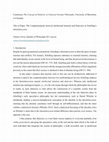
Despite its quasi-geometrical systematicity, Schelling’s Identitätssystem often is the space of m... more Despite its quasi-geometrical systematicity, Schelling’s Identitätssystem often is the space of many tensions and conflicts. For instance, Schelling unequivocally espouses substance or essential monism, claiming that individuality occurs merely at the level of formal being, and that all perceived discreteness is not real but merely phenomenal (SW I/6: 172). Still, Schelling puts forth a robust theory of divine creativity, where individuals are invested with the strongest possible affirmation of their singularity precisely to the extent that their essence is identical to that of absolute being (SW I/3: 368). Another conceptual tension concerns Schelling’s understanding of divine revelation, which oscillates at times between, on the one hand, an immediate affirmation of God’s essence in human reason ("the absolute light, the idea of God, strikes reason like a flash of lightening” (SW I/6: 155)), and, on the other, a gradual disclosure of divine being in history and in the totality of natural beings (SW I/6: 57).
In this paper I propose that these tensions can be productively addressed if attention is paid to the complementarity between two methodological devices Schelling employs in his Identitätssystem, namely intellectual intuition and dialectics. Whereas only intellectual intuition has ontological import, i.e., it is the sole means through which the philosopher has access to reality as such, dialectics is what allows the construction of a scientific system from the standpoint of finite human reason. An inaccurate understanding of the role dialectics plays in Schelling’s early speculative philosophy has led commentators such as Daniel Whistler to mistakenly attribute a process-metaphysical conception of the absolute to the Identitätssystem, claiming that the absolute constitutes itself through its self-differentiation, and that the latter exhibits a dialectical structure (Whistler 2013). Such a dialectical becoming of the absolute relies on Whistler’s claim that in the Identitätssystem formal difference takes priority over essence. The opposite is the case.
I thus propose that dialectics is a tool finite reason employs to overcome partiality and grasp the speculative unity of the real and the ideal which is the truth of each individual that integrates the system of philosophy: a truth accessible only in intellectual intuition. First, I will clarify the nature of Schelling’s substance monism and the way the philosopher has access to the heart of reality, namely intellectual intuition. I will then show how dialectics draws from the insight into divine being gained in intellectual intuition to construct a monadological system, whereby each individual is expressive of absolute being. Finally, I will argue against a processual understanding of the absolute in the Identitätssystem, and thereby make the claim that for the early Schelling, dialectics is merely the epistemic device through which to reveal the absoluteness of the particular, i.e., to demonstrate that every individual is the mutual informing (Ineinsbildung) of the infinite and the finite.
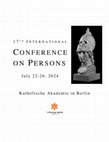
Schelling’s early substance monism has led commentators to categorically deny any trace of a pers... more Schelling’s early substance monism has led commentators to categorically deny any trace of a personified deity in his Identitätssystem (Buchheim 2004, McGrath 2021). They argue that if God is the sole reality of things, there is no substantial difference between His being and that of creatures. Consequently, there is no free, transitive act of creation, let alone any space of communicability within which revelation could occur. Readings such as this rely on a relational understanding of personhood, where one is a person only to the extent that one reveals themselves through their actions. In this paper, I argue for a broader conception of personhood, along the lines of Tegtmeyer (2023), where a person is one who is invested with subjectivity, i.e., an inner life characterized by a volitional component, a structure of self-consciousness, and the capacity for expressive behavior. I then show that all of these predicates are applicable to the God of the Identitätssystem, and that the latter is not straightforwardly Spinoza’s Deus sive natura. While Schelling does not yet adopt the language of full-fledged biblical personhood, first important elements are already in place which will guide his dynamical path towards theological personhood in the Philosophie der Offenbarung.
Event Organization by Vittorio Bortolai A. Alves
May 13, 15.15-19.00
KU Leuven, Institute of Philosophy, Salons (HIW 00.02)
Schedule
15.15 – 15.3... more May 13, 15.15-19.00
KU Leuven, Institute of Philosophy, Salons (HIW 00.02)
Schedule
15.15 – 15.30 Welcome and Opening Words
Session 1: God, Pantheism, and Personhood
15.30 – 16.00 Wai Lam (Eleanor) Foo (KU Leuven): “Jacobi and Kant on God: Spinozism Controversy 1786-1787”
16.00 – 16.30 Vittorio B. A. Alves (KU Leuven): “Divine Personhood in Schelling’s Identitätssystem”
16.30 – 16.45 Break
Session 2: Religious Pluralism
16.45 – 17.15 Nur Betül Atakul (Ankara Yıldırım Beyazıt University): "Kant's Religion and Religious Pluralism"
17.15 – 17.45 Manuel Tangorra (KU Leuven): “Blurring the Limits of Mere Reason: Religious Alterity in Kant and Hegel”
17.45 – 18.00 Break
18.00 – 19.00 Keynote Address by Arthur Grupillo (Federal University of Sergipe): “Normative Presuppositions in Three Interpretations of Hegel’s Philosophy of Religion”
Participation is free of charge and registration is not required.


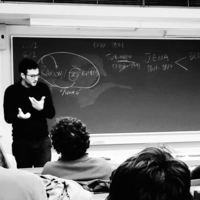




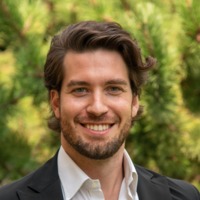
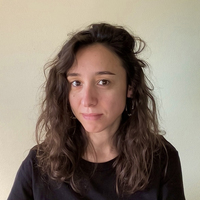


Uploads
Conference Presentations by Vittorio Bortolai A. Alves
In this paper I propose that these tensions can be productively addressed if attention is paid to the complementarity between two methodological devices Schelling employs in his Identitätssystem, namely intellectual intuition and dialectics. Whereas only intellectual intuition has ontological import, i.e., it is the sole means through which the philosopher has access to reality as such, dialectics is what allows the construction of a scientific system from the standpoint of finite human reason. An inaccurate understanding of the role dialectics plays in Schelling’s early speculative philosophy has led commentators such as Daniel Whistler to mistakenly attribute a process-metaphysical conception of the absolute to the Identitätssystem, claiming that the absolute constitutes itself through its self-differentiation, and that the latter exhibits a dialectical structure (Whistler 2013). Such a dialectical becoming of the absolute relies on Whistler’s claim that in the Identitätssystem formal difference takes priority over essence. The opposite is the case.
I thus propose that dialectics is a tool finite reason employs to overcome partiality and grasp the speculative unity of the real and the ideal which is the truth of each individual that integrates the system of philosophy: a truth accessible only in intellectual intuition. First, I will clarify the nature of Schelling’s substance monism and the way the philosopher has access to the heart of reality, namely intellectual intuition. I will then show how dialectics draws from the insight into divine being gained in intellectual intuition to construct a monadological system, whereby each individual is expressive of absolute being. Finally, I will argue against a processual understanding of the absolute in the Identitätssystem, and thereby make the claim that for the early Schelling, dialectics is merely the epistemic device through which to reveal the absoluteness of the particular, i.e., to demonstrate that every individual is the mutual informing (Ineinsbildung) of the infinite and the finite.
Event Organization by Vittorio Bortolai A. Alves
KU Leuven, Institute of Philosophy, Salons (HIW 00.02)
Schedule
15.15 – 15.30 Welcome and Opening Words
Session 1: God, Pantheism, and Personhood
15.30 – 16.00 Wai Lam (Eleanor) Foo (KU Leuven): “Jacobi and Kant on God: Spinozism Controversy 1786-1787”
16.00 – 16.30 Vittorio B. A. Alves (KU Leuven): “Divine Personhood in Schelling’s Identitätssystem”
16.30 – 16.45 Break
Session 2: Religious Pluralism
16.45 – 17.15 Nur Betül Atakul (Ankara Yıldırım Beyazıt University): "Kant's Religion and Religious Pluralism"
17.15 – 17.45 Manuel Tangorra (KU Leuven): “Blurring the Limits of Mere Reason: Religious Alterity in Kant and Hegel”
17.45 – 18.00 Break
18.00 – 19.00 Keynote Address by Arthur Grupillo (Federal University of Sergipe): “Normative Presuppositions in Three Interpretations of Hegel’s Philosophy of Religion”
Participation is free of charge and registration is not required.
In this paper I propose that these tensions can be productively addressed if attention is paid to the complementarity between two methodological devices Schelling employs in his Identitätssystem, namely intellectual intuition and dialectics. Whereas only intellectual intuition has ontological import, i.e., it is the sole means through which the philosopher has access to reality as such, dialectics is what allows the construction of a scientific system from the standpoint of finite human reason. An inaccurate understanding of the role dialectics plays in Schelling’s early speculative philosophy has led commentators such as Daniel Whistler to mistakenly attribute a process-metaphysical conception of the absolute to the Identitätssystem, claiming that the absolute constitutes itself through its self-differentiation, and that the latter exhibits a dialectical structure (Whistler 2013). Such a dialectical becoming of the absolute relies on Whistler’s claim that in the Identitätssystem formal difference takes priority over essence. The opposite is the case.
I thus propose that dialectics is a tool finite reason employs to overcome partiality and grasp the speculative unity of the real and the ideal which is the truth of each individual that integrates the system of philosophy: a truth accessible only in intellectual intuition. First, I will clarify the nature of Schelling’s substance monism and the way the philosopher has access to the heart of reality, namely intellectual intuition. I will then show how dialectics draws from the insight into divine being gained in intellectual intuition to construct a monadological system, whereby each individual is expressive of absolute being. Finally, I will argue against a processual understanding of the absolute in the Identitätssystem, and thereby make the claim that for the early Schelling, dialectics is merely the epistemic device through which to reveal the absoluteness of the particular, i.e., to demonstrate that every individual is the mutual informing (Ineinsbildung) of the infinite and the finite.
KU Leuven, Institute of Philosophy, Salons (HIW 00.02)
Schedule
15.15 – 15.30 Welcome and Opening Words
Session 1: God, Pantheism, and Personhood
15.30 – 16.00 Wai Lam (Eleanor) Foo (KU Leuven): “Jacobi and Kant on God: Spinozism Controversy 1786-1787”
16.00 – 16.30 Vittorio B. A. Alves (KU Leuven): “Divine Personhood in Schelling’s Identitätssystem”
16.30 – 16.45 Break
Session 2: Religious Pluralism
16.45 – 17.15 Nur Betül Atakul (Ankara Yıldırım Beyazıt University): "Kant's Religion and Religious Pluralism"
17.15 – 17.45 Manuel Tangorra (KU Leuven): “Blurring the Limits of Mere Reason: Religious Alterity in Kant and Hegel”
17.45 – 18.00 Break
18.00 – 19.00 Keynote Address by Arthur Grupillo (Federal University of Sergipe): “Normative Presuppositions in Three Interpretations of Hegel’s Philosophy of Religion”
Participation is free of charge and registration is not required.